A Complex TragedyLearn the truth behind the lies. Watch and share. Posted by Turkish News on Friday, April 10, 2015

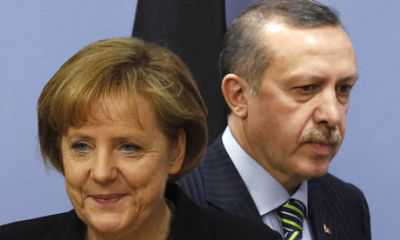
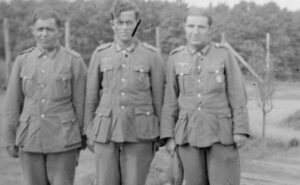 Armenian soldiers fought with the Axis powers during WWII. Photo from WikipediA
Armenian soldiers fought with the Axis powers during WWII. Photo from WikipediA
A few days ago, former Armenian Prime Minister Hrant Bagratyan submitted a draft resolution recognizing the Holocaust in the country`s legislative body. However, when further explaining his move, he told the media: “Some say that we should not recognize the Holocaust unless Israel recognizes the genocide of Armenians.” This is just one bit of vivid evidence of the fact that anti-Semitism in Armenia exists at a state level.
Although the entire world community recognized the Holocaust as genocide of European Jewry right after the Nuremberg Trials, Armenia is reluctant to do so 70 years later. In Europe alone, German fascism annihilated six million Jews only because they were Jews; in contrast, Armenians became victims of the policy of Tsarist Russia, which promised to establish a state for them in the territory of the Ottoman Empire.
The end of Soviet rule removed constraint and anti-Semitic attacks in Armenia rose dramatically. That, and Armenia`s ongoing economic collapse, drove the Jews of Armenia to flee the country. In addition, the cultural violence has continued: Anti-Semitic books and TV programs are presented to the Armenian public and the Holocaust memorial in the capital of Yerevan is repeatedly defaced. Of course, many countries have suffered such unfortunate incidents — the product of an ignorant populace. Nevertheless, in Armenia such views even have been espoused by mainstream politicians and media personalities.
One should mention the remarks of acclaimed scholar Moses Bekker, who said that it was Rimma Varzhapetyan (the so-called head of the Jewish community in Armenia) who saw no wrong-doing with the textbook and mass media glorification of antisemetic activists, such as Dramastamat Kanaya — the fascist general “Dro.” During World War II, general Dro personally took part in the annihilation of thousands of Jews. In her works, Ms. Varzhapetyan states that the current leadership of Armenia needs this “fighter” for the freedom of Armenia, thus employing the image of an ardent anti-Semite and fascist as a symbol for justifying Armenian expansionism and cultivating hatred amongst the younger generation. One must ask if, despite being Jewish herself, Ms. Varzhapetyan is ready to justify the murderous acts of Nazi criminals only because they are Armenians?
History seems to have forgotten the cruelty of the 20,000-strong Armenian legion that participated in the Wehrmacht in the WW II. Nationalist Commander Dro led the Armenian legion to fulfill its mission: to persecute and annihilate Jews via death marches. In his book “Death Tango,” the late Azerbaijani historian Rovshan Mustafayev presented evidence of Armenian involvement in the genocide of Jews, particularly a report from Sonderkommando “Dromedar” about operations in Western Crimea. “From November 16 to December 15, 1941, some 17,645 Jews, 2,504 Karaims, 824 Gypsies and 212 partisans were executed. Simferopol, Eupatorium, Alushta, Karasubazar, Kerch, Feodosia and other regions of Western Crimea were cleaned of Jews,” Rovshan Mustafayev notes in his book. Austrian historian Erich Feigl wrote that in December, 1942, Dro visited Himmler. “Dro had a practice of killing without any compassion, and this strongly impressed Himmler.”
What causes great concern today are the many media and the cultural spaces of Russia and by extention Armenian that provide a channel to present fascists as national heroes, including Dro, as well as Garegin Nzhdeh, an Armenian hero and Nazi collaborationist. Said the Ambassador of the Republic of Armenia (published December 17, 2014), the “Outstanding hero of our people Garegin Nzhdeh believed that ‘the main law of life is a struggle as a method of self-perfection of personality, society and state. This struggle is manifested in the striving for progress of the country and nation.’”
Advertisement
Sadly, there are successors to General Dro and Garegin Nzhdeh: incumbent Armenian president Serzh Sargsyan and Minister Seyran Ohanyan. These men led a bloody massacre of civilians in the Azerbaijani town of Khojaly in the late 20th century.
Suffice it to remember Serzh Sargsyan`s words: “before Khojaly, the Azerbaijanis thought that the Armenians were people who could not raise their hand against the civilian population. We were able to break that stereotype.” This bloody act of genocide, which was committed with incredible barbarism, is one of the horrible tragedies of the late 20th century. As a result, 613 people were killed, 487 wounded, and 1,275 civilians (including elders, children and women) were taken hostage and subjected to unprecedented torture and brutality. This tragedy is an act of evil against all of humanity.
The government of Armenia is doing almost nothing to prevent the growing anti-Semitism in the country. Several hundred Jews who now remain in Armenia will continue to suffer unless Armenia quits its policy of limited nationalism and stops blaming foreigners for their own economic and political problems.
Gut is an expert on international affairs, based in Israel
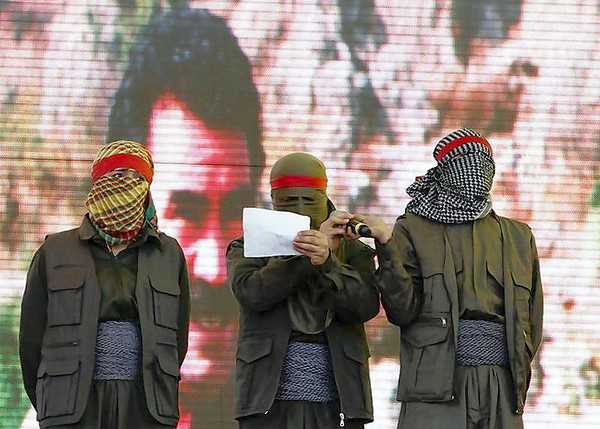
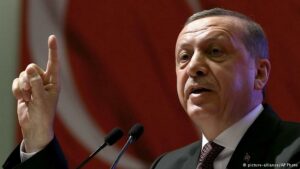
Turkey has badly hurt its international ties by threatening Germany and other partner nations over their assessment of the Ottoman massacre of Armenians a century ago, DW’s Thomas Seibert says from Istanbul.
Turkey has rarely launched rhetorical attacks on so many different international players in such a short time. The pope came in for his share, as did the European Parliament.
Then it was Austria’s turn, before Germany, France, Russia and the USA were also all verbally assaulted – in a series of foreign office statements issued at the rate of almost one a minute – for the positions they have taken in the debate on the correct word to give to the massacre of Armenians by Ottoman authorities one hundred years ago.
‘The Turkish people will not forgive and forget’
In the case of Germany, Ankara stressed that the Turkish people would neither forgive nor forget the words of President Joachim Gauck, who has spoken of an Armenian genocide. At the same time, the Turkish government warned the German parliament in Berlin against passing a planned resolution that also speaks of a genocide against the Armenians from 1915 to 1917.
The presidents of the USA, Russia and France – Barack Obama, Vladimir Putin and Francois Hollande – drew Ankara’s ire because they also mentioned the massacre. And Obama didn’t even use the “G-word” out of consideration for his country’s important NATO ally.
Questionable consequencese
Within just a few hours, Ankara thus verbally attacked three of the five Permanent Members of the UN Security Council and, in the case of Germany, also its most important trading partner. With only a few weeks to go to the Turkish parliamentary elections on June 7, this probably appeals to right-leaning voters – one possible motivation behind the wave of blustering statements.
DW correspondent Thomas Seibert
But Turkey will have to realize that such exaggerated accesses of rage do more harm than good in the sphere of foreign affairs.
For a start, there is barely a single government politician in the targeted countries who takes the tirades from Ankara seriously: many are the occasions when Turkey has announced political and economic reprisals against partner nations in great indignation, only to get back to business as usual without losing another word on the matter.
International isolation
Then there is the fact that the furious Turkish outbursts reinforce doubts about how reliable this partner to the West actually is. To a point, it is understandable, in view of the country’s domestic political situation and the decades spent denying the crime, that the Turkish government rejects the application of the term “genocide” to the massacre of Armenians. But the way Ankara has almost broken up its friendship with important allies in a spectacular gesture just because they did not agree with the Turkish view of things could cause some politicians and officials in the West to think again.
For some time, Turkey has been taking pleasure in presenting itself as a regional power whose irresistible rise is being hindered by foreign ones, because Europe and the USA fear a new rival. This strange view of the world is part of the reason for the heated debate on the Armenian issue, and was frequently promulgated in the past few days in particular by the government-friendly press in Ankara and some advisers to President Recep Tayyip Erdogan. It may be that Erdogan and his Justice and Development Party can score with nationalistic voters in the Turkish election campaign by this means. But internationally, it is a course that will lead to isolation.
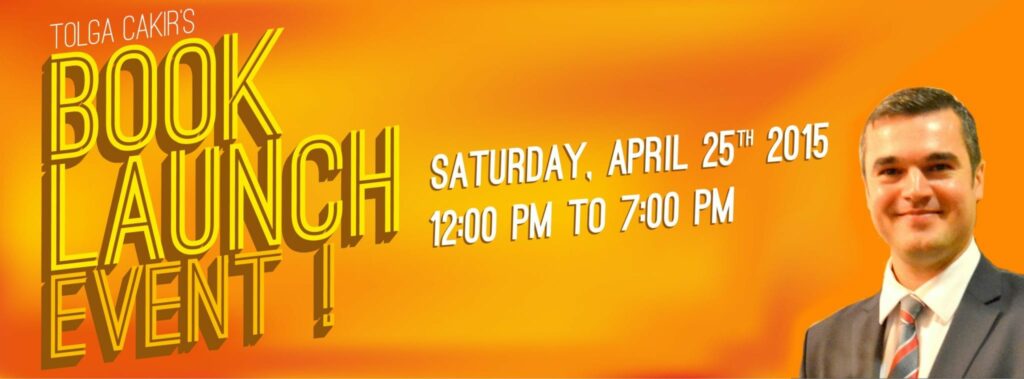
For Immediate Release
Contact: [ Tolga Cakir/ www.tolgacakir.com / 0208 1338883/ admin@tolgacakir.com]
New Book Reveals How To Start An Online Business
Local Business Author to publish a new book entitled How To Start An Online Business In Seven Steps. It will show you seven steps to start an online business in a plain language.
*How to start an online business by clear instructions
This book, to be published on 25.04.2015 will reveal practical strategies designed to help readers who would like to start an online business but don’t know where to start.
In an unprecedented move, the author is offering a limited amount of Free CD copies of the book when it is released. To get the free online version you should go to !booklaunch/ckf7 , RSVP and attend the event.
Tolga is a business author and has a background in business information systems. Tolga received his BSc (Honours) degree in Business Information Systems from the University of Leeds Metropolitan. Tolga has consulted many managers, executives, business owners, and entrepreneurs. In addition to being a consultant Tolga spent many years as a journalist and a professional coach. Despite his demanding career, Tolga makes time to be involved with the community and professional organisations. Tolga Cakir lives in London. When Tolga is not working, he likes to travel, take photos and write.
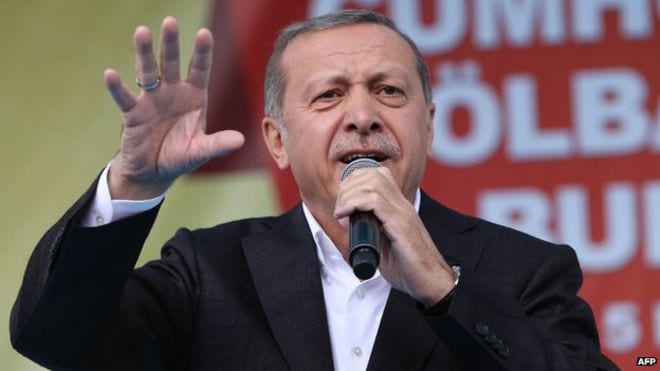
President Barack Obama speaks to members of Congress and other guests in the Rose Garden of the White House in Washington, Tuesday, April 21, 2015, to thank those who supported a compromise that permanently changed how Medicare pays doctors. Also on Tuesday administration officials said that Obama will once again stop short of calling the 1915 massacre of Armenians a genocide, prompting anger and disappointment from those who have been pushing him to use the politically fraught term. Top administration officials discussed the decision with Armenian-American leaders. (Pablo Martinez Monsivais/Associated Press)
By Matthew Lee and Julie Pace | AP April 22 at 3:23 AM
WASHINGTON — President Barack Obama will once again stop short of calling the 1915 massacre of Armenians a genocide, prompting anger and disappointment from those who have been pushing him to fulfill a campaign promise and use the politically fraught term on the 100th anniversary of the killings this week. Officials decided against it after opposition from some at the State Department and the Pentagon.
After more than a week of internal debate, top administration officials discussed the final decision with Armenian-American leaders Tuesday before making it public. The White House said the officials pledged that the U.S. would use Friday’s centennial anniversary “to urge a full, frank and just acknowledgement of the facts.” That language echoed the administration’s five previous statements on the anniversary, as well as those of previous administrations. But it did not use the word “genocide,” as many had hoped.
As a senator and presidential candidate, Obama did describe the killings of Armenians as “genocide” and said the U.S. government had a responsibility to recognize them as such. As a candidate in January 2008, Obama pledged to recognize the genocide and at least one of his campaign surrogates — the current U.S. ambassador to the United Nations, Samantha Power — recorded a nearly five-minute video at the time imploring Armenian-Americans to vote for Obama precisely because he would keep his word on the issue.
But Obama has never used that description since taking office, mainly out of deference to Turkey, a key U.S. partner and NATO ally, which is fiercely opposed to the “genocide” label.
Tuesday’s announcement, accompanied by word that Treasury Secretary Jacob Lew will attend a ceremony in Armenia on Friday to mark the anniversary, was made shortly after Secretary of State John Kerry met with Turkey’s Foreign Minister Mevlut Cavusoglu in Washington.
In brief comments to reporters at the State Department, neither Kerry nor Cavusoglu mentioned Armenia or the upcoming April 24 anniversary.
The White House later said National Security Adviser Susan Rice met with Cavusoglu and encouraged him to take “concrete steps to improve relations with Armenia and to facilitate an open and frank dialogue in Turkey about the 1915 atrocities.”
Historians estimate up to 1.5 million Armenians were killed by Ottoman Turks, an event widely viewed by scholars as genocide. Turkey, however, denies the deaths constituted genocide and says the death toll has been inflated.
Several U.S. officials said there had been a sharp internal debate over whether to use the 100-year anniversary to call the killings “genocide” and make good on the president’s campaign promise, particularly after Pope Francis used the term earlier this month. That comment by the pope prompted an angry response from Turkey, which recalled its ambassador to the Vatican over the matter. Several European governments and parliaments are also expected to use the word in discussions of the events 100 years ago.
Some at the State Department, particularly those who deal directly with Turkey and its neighbors in the Middle East, as well as at the Pentagon, argued against using the word, according to the officials who spoke on condition of anonymity because they were not authorized to discuss internal deliberations.
They said the damage it would cause to U.S.-Turkey relations at a critical time, notably when Washington needs Ankara’s help in fighting the Islamic State group in Syria and Iraq, would far outweigh the immediate benefits. The safety of U.S. diplomats and troops in Turkey was also a consideration, the officials said.
On the other side, officials at the White House and State Department who deal more directly with human rights issues, including Power, wanted the president to use the word “genocide,” the officials said. Asked if there was an internal rift on the issue, one senior official involved in the discussion said simply “yes.”
That official noted that alienating the Turks at this point in Obama’s presidency would mean accepting that the U.S. investment in good relations with Turkish President Recep Tayyip Erdogan had failed. That relationship has been fraught with difficulty in recent years over human rights concerns, among other issues.
Another senior U.S. official acknowledged the decision would be a disappointment to some who were “hoping to hear different language this year” and said the administration understood that perspective. But the official also said the administration believed its approach is right “both for acknowledging the past, and for our ability to work with regional partners to save lives in the present.”
Negative reaction to the announcement was intense from both the Armenian-American community and members of Congress who have championed the Armenian cause.
Rep. Adam Schiff, D-Calif., said he was “deeply disappointed” by the president’s decision.
“The United States has long prided itself for being a beacon of human rights, for speaking out against atrocity, for confronting painful chapters of its own past and that of others,” said Schiff. “This cannot be squared with a policy of complicity in genocide denial by the president or Congress.”
The head of one of the Armenian-American groups briefed on the decision by White House chief of staff Denis McDonough and deputy national security adviser Ben Rhodes went further.
“President Obama’s surrender to Turkey represents a national disgrace,” said Ken Hachikian, the chairman of the Armenian National Council of America. “It is, very simply, a betrayal of truth, a betrayal of trust.”
Copyright 2015 The Associated Press. All rights reserved. This material may not be published, broadcast, rewritten or redistributed.